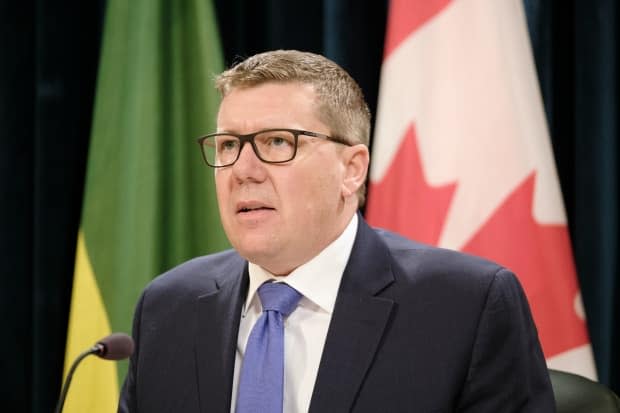Politicians across Canada react to Supreme Court's carbon tax ruling

Today's Supreme Court ruling upholding Ottawa's carbon pricing is being called a win for climate activists looking for stronger fiscal incentives to curb pollution. But it's also being called a loss for fiercely independent provinces that insist the federal guidelines are nothing more than meddling.
Canada's top court struck down the challenge brought by Alberta, Saskatchewan and Ontario and said in its ruling that climate change is a threat to Canada.
In its 6-3 decision, the top court ruled the federal government's carbon pricing system is constitutional, a blow to the provincial governments that had argued efforts to mitigate pollution should be handled at the provincial jurisdiction.
Under the now constitutionally-approved Greenhouse Gas Pollution Pricing Act, the federal government can determine which provinces do not have an adequate emissions-pricing scheme of their own and impose a tax. Citizens are sent rebates under the Climate Action Incentive to cover any increased costs at the gas pump or on energy bills.
Here are some of the reactions to today's decision from political circles around the country:
British Columbia
Terry Beech, federal MP for Burnaby North-Seymour, says the decision means that Canada has an opportunity to be a world leader in reduction of carbon emissions, much like he said B.C. has been a leader in Canada as the first jurisdiction in North America to implement carbon pricing.
"We were the first jurisdiction in North America to implement carbon pricing and we've proven that it works," he told CBC.
"This ruling today is going to ensure that Canadian businesses and Canadians are going to be incentivized to grow a more sustainable green economy. And that's going to lead to entrepreneurial activities for a really high demand, clean energy, clean tech sector that B.C. has already led in because they've led in carbon pricing."
Alberta
Alberta Premier Jason Kenney rejected the idea that the ruling is a loss for the province and defended his government's independent approach to mitigating climate change.
"We now have a third of the Supreme court of Canada validating our position. We didn't get a majority, but it's clear that the position taken not just by Alberta but by six of the provinces representing 80 per cent of Canada's population was a strong and credible position.
"It's a challenge that had to be made," Kenney said, telling a news conference that his government would "continue to keep our election commitment to defend our powers and our economy.
WATCH | Kenney discusses the SCC ruling:
Saskatchewan
Saskatchewan Premier Scott Moe said the carbon pricing, which he called a tax, is punitive for the people in his province.
He said that the ruling has far-reaching implications for federal intrusion into areas of provincial jurisdiction and called carbon pricing "a blunt, ineffective instrument that kills job[s], threatens the competitiveness of our industries and penalizes essential, daily activities of families across our province."
WATCH | Saskatchewan premier comments on the ruling:
Manitoba
Manitoba Premier Brian Pallister says the province is still moving forward with its own legal challenge of the federal carbon tax, despite the Supreme Court ruling.
Pallister said the federal government's plan is tailored to provinces that have a more urban-based economy, and it would profoundly hurt Manitobans since the province is made up of mostly rural and northern communities.
"Manitoba has demonstrated a commitment, we have developed our own plan and we are implementing it," he said. "So we don't believe that the federal government has a right to jump overtop of what Manitobans have worked so hard on."
Ontario
Jeff Yurek, Ontario Minister of the Environment, said while the ruling was not the outcome the province sought, the decision of the highest court in the country will be respected.
"We're disappointed at the decision from the Supreme Court," Yurek said. "But, you know, we are going to move forward with our plan for the environment, which is reducing our emissions 30 per cent before 2005 levels."
Ottawa
According to federal Environment Minister Jonathan Wilkinson, the issue around whether carbon pricing forms part of Canada's plan with respect to reducing emissions is over and that the government would be moving forward with a carbon price.
"I look forward to having those conversations with all my counterparts as to how we actually do that in an effective way," he said.
"It's bizarre to me, to be honest with you, that conservatives in this country are opposed to a market-based mechanism that is the most efficient way to reduce carbon pollution."
Laurel Collins, the NDP Critic for Environment and Climate Change says the ruling is welcome, but that Canadians are still worried about the climate crisis and lack of meaningful action from the federal Liberal government.
"I think Canadians see really clearly the hypocrisy of a government who declares a climate emergency one day and buys a pipeline the next year," she said.
Green Party Leader Annamie Paul noted on Twitter that while a carbon tax is part of tackling climate change, it isn't a complete plan.
"We can't continue to frack gas and build pipelines and hope to meet our targets."
Conservative Leader Erin O'Toole said in a statement that his party would repeal what he called Justin Trudeau's carbon tax.
"We will protect the environment and fight the reality of climate change, but we won't do it by making the poorest pay more."

Last weekend, delegates at the Conservative Party's policy convention voted down a resolution that would have included the line "climate change is real" in the party's official policy document.
O'Toole said he stood by an earlier commitment to present a plan to address climate change ahead of the next federal election.
"I'm the leader. I'm in charge," he said.

